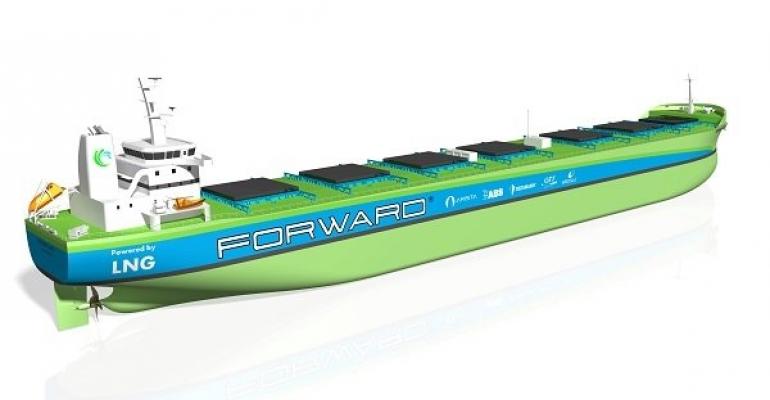Forward Maritime Group, an affiliate of Alexander Panagopulos-controlled Arista Group, said in a press statement the LOI with the Chinese yard slates delivery of the 84,000 dwt ships between 2020 and 2023.
“When delivered, these vessels will be trading under the Forward Ships brand,” the statement said without elaborating on the project’s cost. The ships are described as "Forward Bulker 84-LNG" bulk carriers.
Project Forward, is a joint development project formed and led by the Voula, Athens-based Arista Shipping in 2013 "to combat global ship emissions by promoting the adoption of LNG as a marine fuel, and by suggesting the design of a Kamsarmax size bulk carrier which reduces the cost of transportation at sea, modernises the shipping industry, and defines the new standard of vessel for Imo's 2020 emission rules and beyond".
Partners of Project Forward comprise a group of industry leaders consisting of classification society, ABS, Shell, French engineering company, GTT, engine builder, Wartsila and ship designer, Deltamarin.
Early March Panagopulos confirmed when addressing a Namepa conference in the US that Project Forward was going forward pointing out LNG is economic even today as an Kamsarmax faced a $4m fuel bill for low-sulphur bunkers, but an LNG bunker bill would cost $2.8m. He said the "real game-changer is in dry bulk”.
Panagopulos has said: "Project Forward aims to become a milestone for the shipping industry and in particular for owners and operators of cargoships.
“Owners must decide within the next five to 10 years whether gas as fuel is a practical means of compliance with lower emissions standards and this project will enable all of us to understand its feasibility."
Copyright © 2024. All rights reserved. Seatrade, a trading name of Informa Markets (UK) Limited. Add Seatrade Maritime News to your Google News feed.


